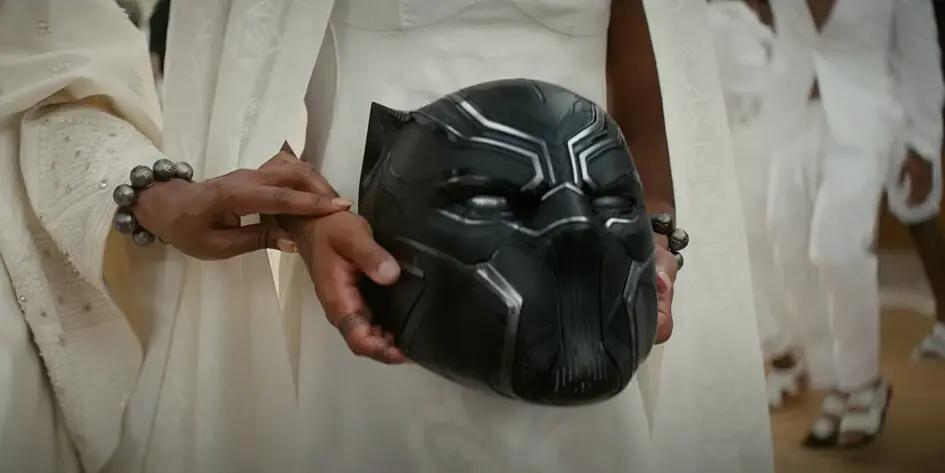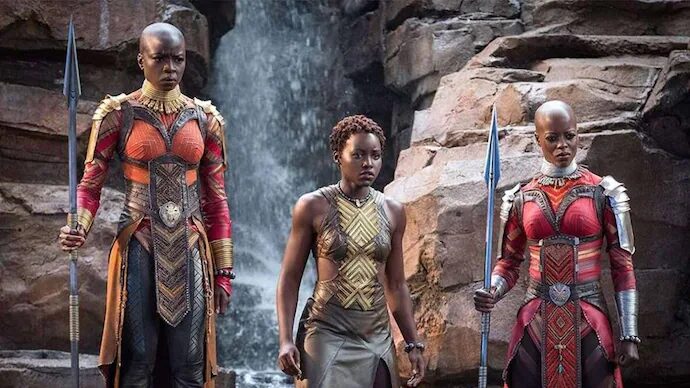I was like most movie fans when I heard of Chadwick Boseman’s passing. I honestly had no idea he was dealing with any issues, much less something that would ultimately take him from this plane of existence so suddenly. He was not only the MCU fan-favorite character, Black Panther, but his career extended beyond action films.
His first credited big-screen role was in the 2008 film, The Express: The Ernie Davis Story, and then he added both 42 and Draft Day to his resume. My first exposure to his talents came in 2014 when Boseman took on the role of James Brown in Get on Up, and soon after his death we got the highly acclaimed film, Ma Rainey’s Black Bottom, which led to him posthumously winning the Screen Actors Guild Award for Outstanding Performance by a Male Actor in a Leading Role, the Golden Globe for best actor and the Critics’ Choice Movie Award for Best Actor.
Disney had a very difficult decision to make. Chadwick was the living embodiment of the Black Panther character. Through four films, T’Challa’s arc had grown, bringing fans into the world of Wakanda. And this arc was nowhere near complete with his death in 2020. So, what was Disney to do?
Should the character have been retired, opting to close out the Black Panther Universe, focusing on other Marvel properties with only passing nods to Chadwick as needed? Or should the path of using CGI to bring Chadwick Boseman back to the screen have been used? Disney has done it before with characters like Princess Leia and Grand Moff Tarkin in Star Wars. Would fans accept it or would they turn on a computer-generated actor and ridicule the House of the Mouse for sullying his reputation?
None of these options sound great, so the next best idea was chosen.
Black Panther: Wakanda Forever is the result of many people’s creative work. In this story, T’Challa (Chadwick Boseman, through archive footage) passes away from a mysterious illness. Shuri (Letitia Wright) believes she could have saved T’Challa with the “heart-shaped herb,” but was unable to recreate it after the events of Black Panther.
A year later, the world governments pressure Wakanda into sharing their resources, particularly Vibranium. The U.S. government commissions a team of agents to find the ore in other parts of the world, and they find a deposit underwater. However, they are attacked by water-breathing superhumans led by Namor (Tenoch Huerta Mejia). Blaming Wakanda for the intruders, Namor visits Ramonda (Angela Bassett), queen of Wakanda, and vows to attack if they do not find Riri Williams (Dominique Thorne), the student scientist who created the tool used to find the underwater deposit.
With conflict on the horizon, Shuri does everything she can to find a way to restore the “heart-shaped herb” so a new Black Panther can be created to champion her people.
Black Panther: Wakanda Forever tries to do too much.
The story starts out as a tribute to Chadwick, giving the audience the chance to mourn the loss of not only the fictional hero, but the real-life actor. The sadness of this opening abruptly ends as the focus shifts to the political pressure being placed on Queen Ramonda. Then we end up with CIA and Navy SEALs getting wrecked by the “fish people” in a very one-sided fight. Next, we end up hunting for a college student who evidently has the skills of Tony Stark and later builds a suit that rivals that of Iron Man himself. And all of this happens in the first half of the film.
The remainder has even more hills and valleys in the story. This constant up and down really became tiring for me, as a viewer. Movies do not have to be flat in their premise (I usually find those movies boring), but Wakanda Forever is a constant rollercoaster. The studio appears to have wanted a tribute film, an action movie, a political drama and a sci-fi flick. And they got it, but it was a jumbled headache of a movie. Too much going on makes for a muddled mess.
With that being said, Disney did the tribute to Chadwick Boseman very well. I genuinely found myself tearing up, knowing that the cast and crew for Wakanda Forever had been very close during the first Black Panther film. It helped feel the pain of the characters on screen, as it was easy to recognize their sadness was not a far extension of their real-life feelings. Chadwick was honored in the best way Disney could have done.
All of the other options would have blown up in the studio’s face. Still, some criticize Disney for continuing on with its intellectual property. To be honest, an incredibly important part of the MCU was sent off well, while leaving the door open for someone new to step up to the plate.
I give Black Panther: Wakanda Forever three out of five stars. Even with the truly emotional send-off for their leader (and lead actor), the rest of the movie feels like it is struggling to decide what story it wants to tell. Everything is thrown at the audience with the hopes something would stick, and quite frankly, very little did. It’s like the old saying, “Too many cooks spoil the broth.”
Wakanda Forever could have done with a few more things on the cutting-room floor. It’s definitely a great film bogged down with too much writing.

